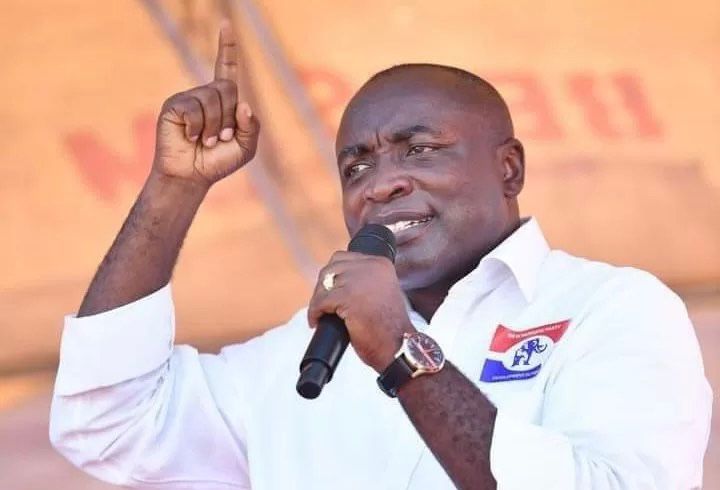Kwabena Agyei Agyepong, a flagbearer hopeful for the New Patriotic Party (NPP), has articulated a vision for Ghana centered on rectifying historical injustices related to land ownership and natural resource management. He argues that the nation’s progress has been hampered by unfair land appropriation practices, inadequate compensation for seized lands, and environmentally damaging resource extraction, leaving many citizens marginalized and economically disadvantaged. Agyepong emphasizes the crucial link between equitable resource management and future prosperity, promising to prioritize the needs of Ghanaians and ensure they directly benefit from the nation’s wealth. His proposed “National Property Justice Initiative” aims to restore public trust in the government’s handling of land and resource issues.
The core of Agyepong’s initiative involves a multi-pronged approach to land reform and resource governance. First, he pledges to review and reform existing land tenure laws, prioritizing the protection of customary land rights, which are often overlooked or undermined in current practices. This reform seeks to empower traditional land owners and communities, giving them greater control over their ancestral lands and resources. Second, Agyepong proposes the establishment of transparent and equitable compensation frameworks for all landed property acquisitions. This aims to address the historical grievances of communities dispossessed of their land without adequate recompense, ensuring fair market value for acquired properties and mitigating the economic hardship often associated with land seizures.
Third, Agyepong’s plan incorporates a novel approach to community oversight of resource extraction by establishing youth-led councils in mining districts. These councils would empower local youth to monitor mining operations, ensuring compliance with environmental regulations and advocating for community interests. This strategy aims to promote transparency and accountability in the mining sector, giving local communities a stronger voice in decisions that directly impact their lives and environment. Finally, Agyepong recognizes the importance of public awareness and education in achieving his goals. He proposes funding civic education campaigns focused on land rights and environmental stewardship, equipping citizens with the knowledge and tools to advocate for their rights and protect their natural heritage.
Agyepong’s commitment to these reforms is underpinned by a direct acknowledgment of past injustices. He has publicly apologized to families and communities who have suffered displacement and environmental damage due to mining operations and poor governance. This apology signifies a departure from the often-defensive stance taken by government officials regarding these issues, demonstrating a willingness to confront past mistakes and work towards reconciliation. His emphasis on “property justice” frames the issue not simply as a matter of legal technicalities, but as a fundamental moral imperative, recognizing the deep-seated emotional and economic impact of land dispossession on affected communities.
Central to Agyepong’s vision is the concept of wealth creation through equitable resource management. He envisions a Ghana where every citizen’s property, especially land, is utilized to unlock capital and generate personal wealth. This approach recognizes land as a crucial asset for economic empowerment, enabling individuals to leverage their property ownership to access credit, invest in businesses, and improve their livelihoods. Furthermore, Agyepong links economic empowerment to improved access to essential services, stating his commitment to facilitating access to quality education, healthcare, and other opportunities. He argues that by addressing the root causes of economic inequality through property justice, Ghana can create a more inclusive and prosperous society.
In summary, Kwabena Agyei Agyepong’s platform centers on addressing historical injustices related to land ownership and resource management in Ghana. His proposed “National Property Justice Initiative” combines legal reforms, community empowerment, and public education to protect customary land rights, ensure fair compensation for land acquisitions, promote responsible mining practices, and empower citizens to become active participants in managing their natural resources. By prioritizing property justice, Agyepong argues, Ghana can unlock its full economic potential, create a more equitable society, and build a future where all citizens benefit from the nation’s wealth. He positions his vision as a path towards national reconciliation, economic growth, and a more just and prosperous future for all Ghanaians.


